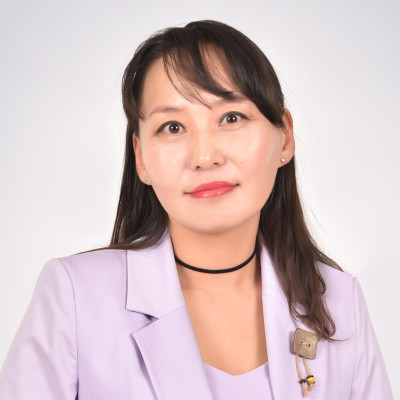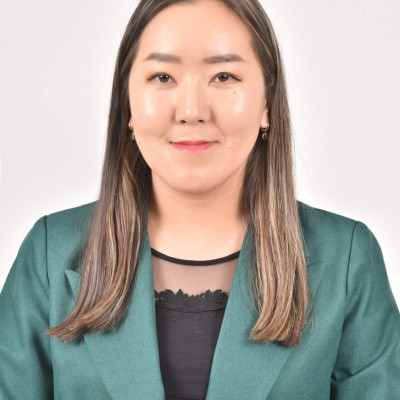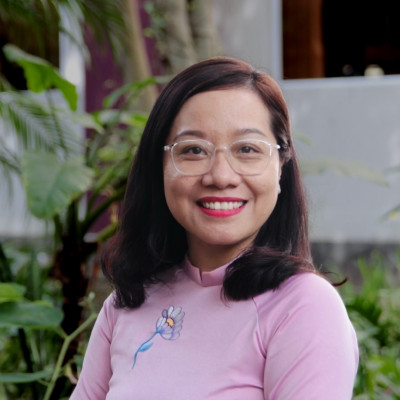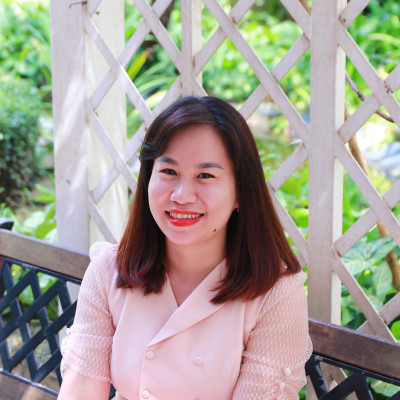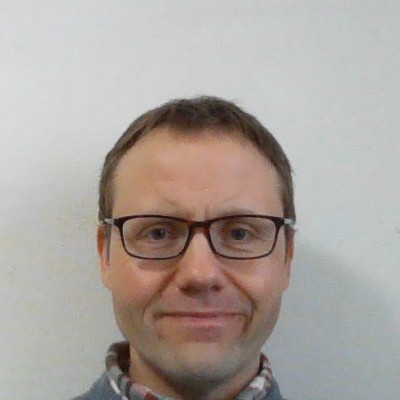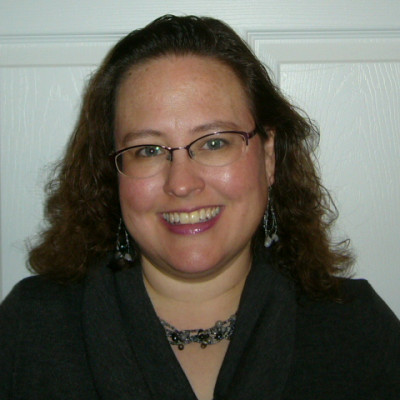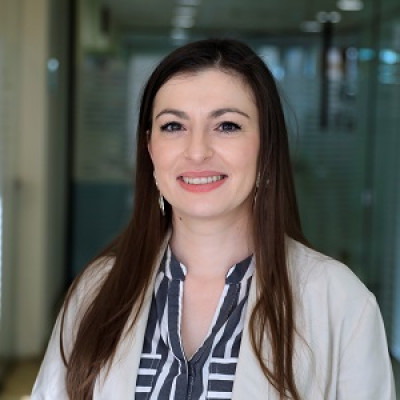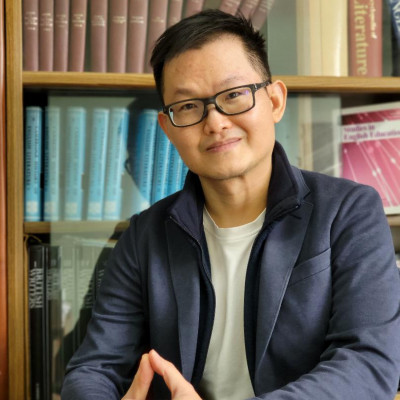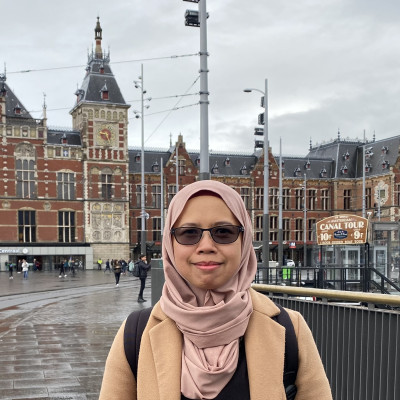Sessions / Teacher Education / Professional Development
Cancelled Learning Action Cells in Language Teaching #3722
Partner Session (PALT)
The Department of Education has taken initiative to mandate the establishment of Learning Action Cell (LAC), a form of Professional Learning Community (PLC) to aid teachers in developing their beliefs and practices through collaborative leaning sessions. This has been made official through the DepEd Order No. 25 s. 2016, which is primarily “directed towards improving teacher knowledge, skills, and attitudes based on established competencies linked to the K to 12 Curriculum”. In language teaching arena, there are few conducted studies on PLC. Aside from that, the experiences of ESL teachers are largely unexamined. Phenomenology, with its highlight to study of living experience led the researchers to discover the experiences of English language teachers in Senior High School. Thus, the study aimed to explore the practices of the in service senior high school language teachers, and how their experiences were useful in language teaching. A LAC session based on the conducted study was proposed. Results show that the practices of the language teachers involved top-down dissemination of information, bottom-up topics, and leaner-centered goals.
Teachers’ Perceptions of Critical Thinking Skills in the EFL Classroom #3612
Trends in academic curricula worldwide have highlighted the need for language learners to develop critical thinking skills for academic and social success. However, there are few studies on what EFL teachers think of critical thinking and how they incorporate it into their teaching. This case study aimed to provide an overview of Taiwanese EFL teachers’ awareness and perceptions of teaching and promoting critical thinking skills. Four experienced EFL teachers participated in this study. Data were collected through semi-structured interviews and classroom observations. The results indicated that these teachers were optimistic about incorporating critical thinking into language teaching and used various strategies to encourage students to think critically. However, teachers also reported that they found it difficult and encountered obstacles due to learners’ language levels and contextual factors. Accordingly, these teachers expressed the need for professional development in order to provide effective instruction that guides their students in critical thinking.
Modern Approaches in Teaching English in Primary Schools #3649
Competent teaching is impossible without a solid foundation, and so methodology has evolved and developed throughout the history of English language teaching and education. This paper reveals the issues of innovative and modern approaches towards teaching English to young learners that exist currently. They include constructivist, script-(story line-method), simulation, task and project based-approaches, among others. The study explores the basic concept of innovation in the process of language teaching, so it is necessary to start with the fact that teaching English in schools is significantly developing under the influence of contemporary trends and approaches. The key purpose of the study is to highlight the importance of using modern approaches in the language classroom. It is conducted on the basis of literature review. To sum it up, using modern approaches is one of the key concepts of ELT innovation, which gives the best results to motivate and engage young learners in learning a language.
Shared Development: Promoting Shared Lesson Plans to Enhance Professional Development #3402
This action research aims at examining the impact of shared lesson plans on teachers’ professional development. “The shared lesson plans” term refers to collaborative lesson planning which allows teachers to apply the same lesson plans to their teaching practices regardless of their differences. The research was conducted among 10 English teachers in two schools in a rural area of Mongolia for 48 weeks. The data was collected through the interviews, the story of the group chat, and students’ feedback for the teachers. The data were thematically analyzed. The result of the research shows that all 10 teachers benefited from the shared lesson plans in terms of their teaching methods, and professional, academic and personal growth according to the socio-cultural theory of Vygotsky. The findings suggest that novice and reluctant teachers should be more mentored and taken care of throughout the implementation of the shared lesson plans.
Practical Steps to Conducting Practitioner-Research #3452
One of the most impactful questions I have ever heard at a conference came in the form of two simple words: ‘So what?’ The question perfectly illustrated the position of many educators who feel that a lot of research is decontextualized and detached from the problems and realities of their practice (Rose & McKinley, 2017). One way of bridging this perceived gap between research and practice is for in-service teachers to conduct their own practitioner-research.
Despite the benefits associated with engaging in practitioner-research, there are numerous factors that prevent teachers from doing so, including the perceived difficulty. In order to address these issues, this presentation outlines a 13-step cycle (adapted from Bury, 2023) that can be followed to actively conduct research in classroom contexts. It is hoped that the procedure introduced in this cycle will enable teachers’ confidence in conducting research and sharing their findings to grow, leading to valuable, practical insights being gained.
Connecting with English Teachers Online: Challenges in Teachers’ Professional Social Media Use #3535
The past decade has witnessed a growing number of studies illustrating how online teacher communities on social media platforms offer a worthwhile space where teachers can easily exchange teaching ideas, ask questions, collaborate with others, and obtain emotional support. Instead of seeing online teacher communities through rose-tinted glasses like most studies in the existing literature, the present study focuses on identifying the drawbacks of teachers’ uses of social media for professional learning purposes. Data were collected via online observations of an online language teacher community and semi-structured interviews with 30 English language teachers who are professionally making using at least one social media platform. The findings are discussed in terms of the challenges associated with teachers’ professional uses of social media, and, ultimately, the ways in which social media might best be incorporated into teachers’ professional learning practice are suggested.
The Effects of a Self-Study Program on Pre-service Teachers’ English Pronunciation #3538
This study examined the results of a one-year self-study program where Japanese pre-service elementary school teachers (52 first-year university students) conducted a self-study activity of their pronunciation skills. They practiced English pronunciation from an assigned textbook outside of class. In order to evaluate the change in the participants’ English proficiency and teaching skills, a survey was conducted before and after the program. Comments in the post-treatment survey suggested that they felt more confident with their pronunciation towards the end of the program. On the other hand, the majority of the participants mentioned that they felt the need for further self-study to improve their pronunciation in actual teaching situations, and also to adjust their English “teacher talk” to the level of their students’ proficiency. It seems that the self-study program provided the participants with an opportunity to reflect on their growth as teachers and recognize areas for further improvement.
Preservice Teachers’ Flourishing and Teacher Resilience Through Online Mentoring #3582
This study explores EFL preservice teachers’ perceptions and experiences in online mentoring, expected to promote flourishing and teacher resilience in teacher education. A qualitative research design was used to gain insights into preservice teachers’ experiences of resilience and flourishing. Data from interviews, e-survey questionnaires, and artifacts were collected from 23 preservice teachers majoring in English language education at a medium-sized national university in Korea. Among the participants, six were given in-depth interviews for a better understanding of the conception of flourishing and teacher resilience. Findings reveal that four themes of flourishing were identified by this study, contributing to research on teaching EFL learners and teacher education in TESOL. Moreover, teacher resilience was found in the interviews and e-surveys. This study suggests that more research should be conducted to examine the conception of teacher resilience and the function of flourishing in fostering positive attitudes among EFL preservice teachers to their teaching and learning.
Collaborative Scenarios and Teacher Growth #3358
Plenary Session (Synchronous ONLINE)
Update! Due to technical difficulties, we've had to restart the meeting. Please copy and past the link below: https://us06web.zoom.us/j/89384993798?pwd=R2gzeUZPVzl3SFY2SHMreDd3SnpxQT09
Or use:
Room code 893 8499 3798 Password 501506
In this plenary, we will explore the difference between cooperation and collaboration while highlighting why they are important constructs for teacher growth. Taking into account what has transpired after the pandemic, we will explore the areas of our work that require collaboration. We will also analyze different roles in collaborative relationships and explore concrete collaborative activities oriented towards professional development.
Effects of Limited-Term Contracts on Foreign Language Teachers Integration into Japan #3628
At a time when universities are experiencing a steep decline in enrollment rates, staff retention, integration, and commitment play an important role in the institution's sustainability. Thus, the current study aims to explore the effects of limited-term contracts (LTCs) on foreign language teachers' (FLTs') willingness to integrate on work-related and sociocultural levels. This research adopts a qualitative approach using questionnaires and interviews that focus exclusively on FLTs' LTCs at a university in Tokyo. Key findings are that LTCs do have a direct impact on FLTs willingness to integrate within their institutions at a peer and institutional level as previously highlighted by Chen (2022), Sato and Cotter (2017), Fuisting (2017), and Sato et al. (2015). However, limited effects were found at a classroom level. Additionally, evidence suggests that there is a correlation between sociocultural integration outside of work and willingness to integrate at the work-related level.
Using Drawings and Metaphors to Explore Teacher Identity #3369
Invited Second Session
Knowing oneself is, undoubtedly, a crucial element in ways one interprets the nature of one’s work. In the field of teacher education and professional development, “teacher identity” has been considered as an important factor that affects how teachers make decisions in and make meaning of their profession. Teacher training and professional development should provide ways for teachers to explore their identities to address issues that tend to strengthen or hinder their teaching practice in the classroom. In order to empower teachers, this workshop will focus on how we perceive ourselves as foreign language teachers by expressing our perspectives through drawings and metaphors.
Haiku Poems for Syllabic and Phonetic Awareness #3600
Creating Haiku poetry combines syllabic and phonetic awareness for English learners. This workshop demonstrates a Jigsaw PBL (Project-Based Learning) method. After an interactive warm-up activity practicing question forms to know each other, the class learns the Haiku poem structure. Then small groups of mixed-level participants brainstorm words associated with their local towns evoking nature to actively collaborate and create Haikus about their respective environments. Final presentations are on group posters (analog) and a wholeclass e-book accessible to the world (digitally on Canva). For professional development participants work in small, mixed groups to experience a jigsaw lesson in order to plan their own jigsaw lessons with their students’ needs in mind. Free resources are shared via Google Classroom and participants are invited to join a Facebook group for teachers to collaborate and share teaching tips as an on-demand professional development source to continue the conversation.
Lunching and talking: An attempt at teacher collaboration and reflection at KMUTT #3626
Partner Session (ThaiTESOL)
It is undeniable that the outbreak of Covid-19 has placed most, if not all, Thai EFL teachers in an extremely uncomfortable situation. While the pandemic may have slowly faded, its legacy still lurks behind the pedagogical practice and policy making in a lot of Thai educational institutes. At King Mongkut's University of Technology Thonburi, online classes continue to be regarded as a practical, convenient and above all, 'safe' mode of learning. The safety net of online teaching, nevertheless, comes with an expensive price for EFL teachers at the university who have lost touch with not only their students but also their work colleagues. To tackle the issue, a series of lunch talk was organized from December 2022- February 2023 to encourage the faculty to discuss, reflect and share their research ideas, anxiety and self-development goals. The topics ranged from casual conversations such as favorite books to serious discussions on professional development, research collaboration and teaching techniques. A total of 22 teaching staff at the Department of Language Studies were then interviewed to mainly see if they had benefited from attending the talks. Findings showed a variety of opinions and interestingly two-thirds of the participants did not find attending the talks useful or impactful. Further inquiry into teachers’ expectations regarding collaboration should therefore be made to ensure the long-term benefits.
Conducting, Collaborating, Sharing: Three Tenets of Practitioner-Research #3438
Engaging in practitioner-research has a range of benefits for teachers, educational institutes, students, and the overall field of TESOL. Teachers can move toward becoming “holistic TESOL professionals” (McKinley, 2019), new approaches can be experimented with, effective teaching practice can be identified and promoted, and focusing on the real-life issues that affect teachers enables the linking of theory and practice.
In this presentation, three of the central tenets of practitioner-research (conducting, collaborating, and sharing) are identified and their importance to the wider educational community is discussed. Practical steps that can be taken by educators to promote the effective development of those tenets are then highlighted.
It is hoped that this presentation will encourage engagement in practice-based investigations, the sharing of research findings with others, and the development of collectivities or communities of practice, leading to a range of positive outcomes for multiple stakeholders throughout the educational environment.
Reading Anxiety and Reading Performance Among Vietnamese English-Major Students #3484
Reading seems to be an easy process which does not cause language learners as much tension as other productive skills. However, similar to other skills, an experience of anxiety may cause poor performance and reading receives no exception. The current study investigated 71 English-major students who studied the English Linguistics Program at International University,VNU-HCMC, Vietnam. The students took part in the survey to measure their reading anxiety, using the English Foreign Language Reading Anxiety Inventory (EFLRAI) (Zoghi & Alivandivafa, 2014). They were later assigned one Certificate in Advanced English (CAE) reading test to measure their reading performance. The results found out that students experience low to moderate levels of reading anxiety. Additionally, the Pearson correlation test showed a significant moderate negative relationship between reading anxiety and reading performance (r=-.362). The findings indicate that the anxious feelings can be considered as a barrier to students achieving good reading performance.
Reassessing Classroom Observation for University Teachers #3587
Classroom observation is one of the most common ways to reflect and improve teaching practice. However, the researchers recognized, through conversations with colleagues and friends, an apparent lack of classroom observations among university teachers in Japan and decided to investigate this issue further. This study investigates the experiences and beliefs of university teachers working in Japan related to classroom observations. An online questionnaire was distributed and the results were a combination of quantitative and qualitative data. Follow-up interviews were conducted with volunteer teachers to discuss their experiences of classroom observations in more depth. The results highlight the scarcity and negative connotations of classroom observations, as well as offering practical ideas for how to re-evaluate and consider the benefits of peer-to-peer classroom observations at the university level in Japan. The researchers will then introduce their plans to develop this research in the future.
"English Teaching Forum" Roadshow for Thai Primary School Teachers: A Collaborative Project #3637
Partner Session (ThaiTESOL)
The presentation showcases the "English Teaching Forum" Roadshow as a collaborative project between Regional English Language Office (RELO), US Embassy (Bangkok) and Thailand TESOL to conduct five workshops for Thai primary school teachers nationwide. This project celebrated the 60th anniversary of "English Teaching Forum" magazine, which publishes a number of articles on practical pedagogies and materials that cater for various learning needs and levels. This one-day on-site teacher training workshop was designed based on the perceived needs of teachers through an edutainment communicative teaching method. Each workshop aimed at both upskilling the teachers' English proficiency and promoting technology-enhanced teaching methods through the use of online materials. There were nearly 200 teachers from five regions in Thailand attending these workshops. They not only expressed positive attitudes toward the training as they gained first-hand experience to enhance their professional development, but also created a professional learning community within the region. This project highlights the mutual engagement between Thailand TESOL and RELO Bangkok to strengthen ELT communities in Thailand and expand wider networks of teachers who can potentially play key roles for young learners' English achievement during and beyond Covid-19.
Developing Teacher-Student Collaboration across subjects in English in the classroom #3639
Many students are not motivated to learn English because they do not see its value nor relevance to their lives or future endeavors. Although they have strong grammar or vocabulary competence, they barely practice their English. In Asia, the challenge is building a teacher-student relationship so that students can relate to other subjects they have learnt and apply it to communicate with people from around the world in English. How can educators develop a conducive environment to help students socialize in English outside the classroom? In this interactive workshop, the participants explore practical lesson ideas that can stimulate self-reflection on teaching practices through creative and critical thinking.
The University of Missouri Online M.Ed. TESOL Program #3831
Learn about the second language acquisition process and enhance your teaching practice by completing a master’s degree in Learning, Teaching, and Curriculum with an emphasis in TESOL at the University of Missouri. Join this session to learn about the online M.Ed. track and hear about the experiences of students in the program. Have your questions about the curriculum and the application process answered by program faculty.
In addition to Dr. Ashcraft, a graduate and current student in the program will also be on hand:
David Blaisdell is a 2020 graduate of the TESOL program at the University of Missouri. He teaches English Language Arts at Hankuk Academy of Foreign Studies.
Self-Directed Learning: Exploring the Continuous Professional Development of NESTs in South Korea #3633
This project explored the self-directed professional development (SDPD) that native English-speaking teachers (NESTs) in South Korea engaged in. Data was collected from 56 teachers who completed online questionnaires, 11 teachers of which also completed follow-up interviews. In the 12 months prior to the study, only 35 teachers engaged in SDPD. Findings indicated that teachers with education degrees interested in pursuing long-term EFL/ESL careers were the most likely to participate in SDPD. Of the teachers that failed to participate, multiple factors hindered involvement (e.g. lack of necessity). Consistent with research literature, the study participants did not appear to engage in sufficient professional development to increase student learning outcomes, completing only 1.23 SDPD activities on average. Considering our findings, this presentation includes recommendations to tackle SDPD at the individual, accreditation, and context levels. Attendees working and/or advising in education contexts wishing to further their knowledge of effective SDPD practices (e.g. reflection) will find this presentation informative.
"What next?": Reflecting on the design and efficacy of pre-service teaching workshops #3583
Novice English teachers in Japan at junior and senior high schools are facing challenges for which their pre-service training has failed to prepare them (Mouri, 2020; Tahira, 2012). In addition, the support structure for English teachers in the public system is wholly inadequate. This presentation explicates a research project that aims to understand and support the practical needs of pre-service English teachers who intend to teach at junior and senior high schools in Japan. Pre-service teachers of English (n=20) were asked to identify what topics they would like to be included in teacher-training workshops designed to address their needs. In 2022, two workshops were held based on these perceived needs. This presentation will focus on the efficacy of these workshops based on the participants’ feedback. The presenters will map out the design of future workshops and argue for the necessity of practical support considering the current teacher-training structure in Japan.
Locally Routinized Categorization for Pretend Play: Microanalysis of Preschoolers’ Interactive Book Reading #3629
This study highlights the effective implementation of Interactive Book Reading (IBR) in children’s L2 learning: a well-recognized activity to facilitate children’s active participation and literacy development in L1 contexts (Wasik & Bond, 2001). Using conversation analysis, the study analyzed 391 minutes of video-recordings of actual interaction between a teacher and preschool-aged children at an English immersion afterschool in Japan. The microanalysis details the teacher’s storytelling strategy that routinely categorizes the children as story characters through the use of repetitive utterance rhythm, prompts, and escalated affective stances. The categorization implicitly guides them to perform the appropriate character enactment timely, thereby positioning them as co-storytellers. It demonstrates such enactment is recycled by the children as a means of formulating incipient agentic L2 storytelling. The study argues IBR through pretend play affords young novice L2 learners affectively-charged storytelling practice, thus proposing one alternative approach to IBR to teachers in similar contexts.
Cancelled EFL Teacher Development in Rural Armenia: A Collaborative Project #3473
This paper explores the educational benefits of an EFL teacher development program provided at the American University of Armenia (AUA) in Yerevan, Armenia. The program was created as a result of the collaboration between the master’s program in Teaching English as a Foreign Language at the AUA and the Children of Armenia Fund, a foundation which seeks to empower rural Armenia by also improving the quality of teaching and learning in rural schools. The program included 9 units of course work and a teaching practicum which the 17 in-service teachers completed in their own classrooms while observed by the faculty. Through a qualitative analysis of surveys, teaching reflections and focus interviews, this case study showcases the teachers’ perceptions of their learning experiences and discusses them in relation to the program learning outcomes. We offer implications for building collaborations to transform language education in rural and far-flung schools.
Professional growth through critical friendships: Cases from Japan #3385
Teachers across Japan recognize the importance of professional development (PD), but many are at a loss for what to do since many report feeling isolated or compartmentalized. While recent government initiatives are encouraging more PD, without specific measures being implemented, institutions and individuals remain responsible for creating change. In the absence of formalized PD, many teachers in Japan end up looking beyond institutions to build relationships like critical friendships that, through reflective practice, provide support and encourage growth. A “critical friend” or “trusted other” is someone with whom an educator can engage reflectively and collaboratively about their beliefs, practices and identity (Hatton & Smith, 1995; Stenhouse, 1975). This panel will showcase the experiences of several EFL professionals in Japan through research conducted on, and through, critical friendships. Panelists will share their approach to researching their critical friendship research and what they gained, broadly and in terms of their personal growth.
Standardised Language Tests - An Unexplored Tool for Teacher Development? #3532
Scholars have long supported the idea that teachers of languages can themselves benefit from learning a language as it can enable educators to reflect on their own pedagogical methods and understand the experiences and challenges that face language students (Cornwall & Kato-Otani, 2013; Ellis, 2006). Additionally, in the highly international modern world, institutions and employers are now highly dependent on standardized language examinations to assess candidates, making standardized testing an almost essential part of modern language education. Logically, this suggests that in order to build mutual understanding and develop classroom methodologies, taking a standardized test in a second language should be a beneficial experience for language teachers. This presentation will introduce the findings of an interview based research project that explores how taking the Japanese Language Proficiency Test (JLPT) influenced the teaching methodologies and student empathy of several teachers of English at Japanese universities, and show how taking a standardized test - be it JLPT, TOPIK or anything else - can be an excellent way for language teachers to develop their professional skills.
Mental Health and the Intersections of a Korean University EFL Classroom #3461
Mental health may be a neglected piece of the solution for those who want to embrace the vocation of an educator to both see their students succeed in learning English and have full meaningful lives. This workshop will provide a brief overview of the buzzwords "mental health" and lay out some useful definitions for a more helpful discussion of the topic. Then the workshop will engage in conversations to think about how the three spaces of higher education, Korea, and EFL affect mental health. The presentation will conclude by giving some resources which students and educators might find helpful.
Collaborative Approaches to Teacher Development for Language Teachers #3356
Plenary Session
One of the greatest resources a school has is its teachers. In any school, there are teachers with varied experience, knowledge, and skills; and both the school and its teachers can benefit by learning from each other through different forms of collaborative professional development (CPD). Collaborative approaches to learning are central to current pedagogies of second language teacher education. In this presentation approaches to CPD will be discussed, including teacher support groups, lesson study, teacher research, and online professional communities, as well as the opportunities and challenges involved in implementing CPD.
Lessons from the pandemic: Implementing responsive professional development looking towards the future #3398
Recent years have seen a marked shift in how education is being conducted, especially regarding technology use when online teaching became the norm during the pandemic. The presenter is a member of a team overseeing professional development for a large department of English-speaking educators at a Japanese university. Their poster will describe the implementation of emergency remote teaching (ERT) support in 2020, with particular focus on a) how it utilized teacher input and emphasized collaboration and b) how the lessons from this period have been applied to subsequent professional development support activities. Some of the takeaways that have continued include an informal technology troubleshooting chat group, an online forum for sharing materials, ideas, and resources, the use of technology guidebooks, and orientations. The efforts have enabled a smooth transition to hybrid as well as face-to-face lessons, and have informed policy decisions aimed at ensuring the continuation of quality education.
Walking the Talk and Walking with Students Together: Teacher Authenticity #3365
Invited Second Session (Synchronous ONLINE)
Students often have high expectations of their teachers. We talk a lot about what students should do, such as completing assignments on time or starting paragraphs with topic sentences, but are we authentic, do we practice what we preach? This presentation shares a three-part procedure – one of many ways that teachers can be authentic. First, based on our own beliefs and experiences, in Part 1, we Talk to explain to students something we feel is important, such as being willing to say, “I don’t know.” In Part 2, we Walk Our Talk, letting students see and hear us doing what we talked about (e.g., admitting our ignorance to students and others). The highlight of the process is Part 3, when we encourage students to Walk Together with us, by also saying, “I don’t know.” Examples of teacher authenticity are shared from many teachers. (George M. Jacobs & Chenghao Zhu, with Jasper Roe, Qingli Guo, and Meng Huat Chau)
Bridging Research and Practice: Professional Development on Teaching Writing in Secondary Schools #3500
This session presents the rationale, development, implementation, and initial assessment of an on-site, traveling professional development workshop series designed for secondary teachers engaged in academic writing instruction to English learners (ELs) in content areas. This workshop series was initiated in response to an increasing number of ELs in Florida and a large number of secondary educators entering the profession without ESOL endorsement due to a teacher shortage. It was designed to address teachers’ lack of pedagogical knowledge and skills to teach academic writing to secondary school students. Drawing on genre pedagogies and pedagogical discourse analysis, we invite conference attendees to join us to delve into the research-based framework, activities, and resources used to enhance secondary teacher competence in teaching academic writing. Participants will learn how to integrate language, content, and context in their teaching and analyze published texts and student essays to practice using genre pedagogies for teaching writing.
Rethinking Teacher Quality of Indonesian EFL Teachers #3592
The study is conducted to respond to the issue of English teacher quality in Indonesia. Despite the importance of English as a language taught and tested in Indonesian schools, there are issues concerning the competence of English teachers. Responding to this issue, the Indonesian government enacted some regulations which incorporate the mandated competencies to be achieved by teacher candidates in initial teacher education programs as well as to manage teacher professionalization. However, there is a lack of research on understanding the competency of teachers and their professional journey from teachers’ own perspectives. The information gathered from the teachers could be beneficial for policymakers to improve Indonesian education in a more democratic way. Therefore, employing the sociocultural perspective, this study will investigate EFL teachers' perceptions of teacher quality seen from their professional formation at pre-service teacher education programs.
Exploring a Potential Suitable Model for ETEPs (English Teacher Education Programs) in the Indonesian Context #3622
Studies noted unsatisfactory students’ English proficiency levels in the Indonesian context that potentially connect to the insufficient English teachers’ quality in this country. This study explores the possible suitable model of ETEPs in the Indonesian context from the perspectives of 66 internal stakeholders at four ETEPs. The data of this study gathered from interviewing four head of ETEPs, 10 teacher educators, 11 graduates, and conducting focus groups with 41 student teachers. The data were analysed using thematic analysis. The findings suggest that ETEPs should 1) apply tighter admission procedures 2) offer courses related current trend in ELT (English Language Teaching), 3) offer balance general and classroom English courses, 4) emphasis on reflection in teaching practice courses, and 5) provide compulsory and guided extracurricular activities. As such, this study can add to the limited literature on ETEPs model, and, ultimately, contribute to the quality of English teachers and Indonesian students’ English proficiency.
Bringing back face to face conferences: Dynamic presentations #3399
Perhaps you've found yourself at a conference, thinking that you could give a presentation. You can! This presentation is designed to walk participants through each step of the proposal and presentation process. You will be shown where to look for upcoming conferences, the steps to apply toward presenting, keys to a strong proposal, and some tips on how to make your presentation be successful. Because the process can seem a bit daunting and confusing the first time, we hope that having a couple veterans of the process to help you along the way might make all the difference. In this workshop, you will be given information, shown examples, and guided through small group work to start producing an abstract that participants can use for future proposals.
Collaborative Teaching and Learning in TEFL #3368
Featured Session
Collaboration, in any shape or form, is valuable in all contexts, including educational settings. As there are increasing demands for teachers and students to keep up with advancements in technology as well as constant changes in educational policies, collaboration seems all the more essential. Furthermore, the traditional concept of collaboration as merely working together has now been extended to strategic collaboration such as that used in cohort-based learning. It is, then, crucial to identify and discuss the types of collaboration that we can find in the English classroom focusing on what has been done and what possibilities we can consider in the Korean EFL context. As such, this presentation will focus on the various types of collaboration that form an intricate network of sharing and cooperating in the English classroom, starting with the perspective of teaching-as-coaching as a way to describe how teachers and students should work together in the classroom. Also, by means of action research in collaboration with teachers and researchers, I will discuss how professional development that is more aligned with the needs of the teachers can be provided. Finally, I will provide some examples of how teachers and students can collaborate with machine translation to enhance foreign language learning in the Korean EFL classroom.



